Acticles
08.11.2024
Approach to Teaching for Deeper CLIL and Beyond – A Pluriliteracies Learning: hybrid workshop (11-12 October 2024, Podgorica, Montenegro)
ECML training and consultancy "Approach to teaching for deeper CLIL and beyond – A pluriliteracies learning": hybrid workshop (11-12 October 2024, Podgorica, Montenegro)
Venue: Bureau of Educational Services in Podgorica
Local organiser: Jasmina Djordjevic, Bureau for Educational Services of Montenegro
ECML experts: Letizia Cinganotto (Italy) and Susanne Staschen-Dielmann (Germany)
Participants: 22 teachers of all subjects in elementary and secondary schools, advisor from the Bureau for Education
On 11-12 October 2024 the Bureau for Education Services, with the expert support of the European Centre for Modern Languages, organised a hybrid workshop Approach to Teaching for Deeper CLIL and Beyond – A Pluriliteracies Learning.
Class and subject teachers from elementary and secondary schools that are implementing bilingual education programmes and an advisor from the Bureau for Education Services participated in the workshop. The participants had an opportunity for training on the basics of integrated learning of content and language (CLIL) and deeper learning episodes which support the transfer of learning across language and subject, based on the pluriliteracies model.
The high standards set through technology and innovation strongly influence both curricula and teaching, so the approach from the pluriliteracies perspective for knowledge transfer provides teachers with a valuable skill for responding to the needs of contemporary school.
The workshop was facilitated by ECML experts Letizia Cinganotto (Italy), in-person, and Susanne Staschen-Dielmann (Germany), on-line.
For more information about European Centre for Modern Language of the Council of Europe: www.ecml.at/TrainingConsultancy/CLIL/tabid/1815/language/en-GB/Default.aspx.
Jasmina Đorđević
Montenegrin version
Zavod za školstvo, uz ekspertsku podršku Evropskog instituta za moderne jezike Savjeta Evrope, organizovao je hibridnu obuku Approach to Teaching for Deeper CLIL and Beyond – A Pluriliteracies Learning 11. i 12. oktobara 2024.
Obuku su pohađali nastavnici osnovnih i srednjih škola u kojima se organizuje dvojezična nastava i savjetnica Zavoda za školstvo. Nastavnici su imali priliku da prođu obuku iz osnova integrisanog učenja sadržaja i jezika i sveobuhvatnog planiranja časa, koja pruža podršku transferu učenja između jezika i sadržaja, zasnovano na modelu multipismenosti.
Tekući visoki standardi koje postavljaju tehnologija i inovacije snažno utiču na kurikulum i nastavu tako da pristup iz perspektive multipismenosti za transfer znanja pruža nastavnicima vrijednu vještinu kako bi odgovorili zahtjevima savremene škole.
Obuku su vodile ekspertkinje ECML-a Letizia Cinganotto, neposredno, i dr Susanne Stachen-Dielmna, on-line.
Više of Evropskom centru za moderne jezike Savjeta Evrope: www.ecml.at/TrainingConsultancy/CLIL/tabid/1815/language/en-GB/Default.aspx
Jasmina Đorđević
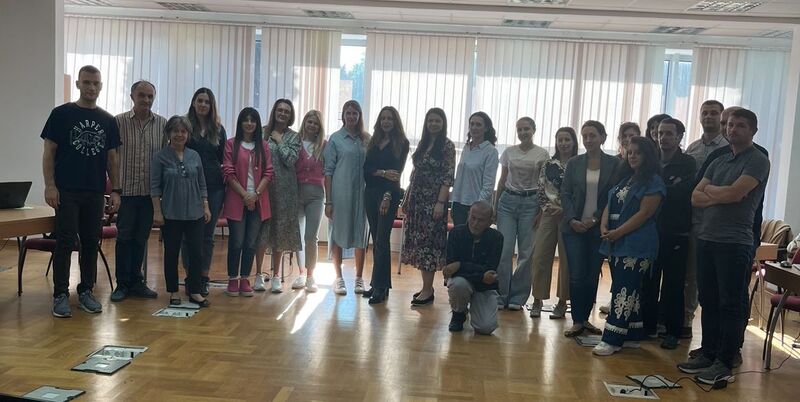
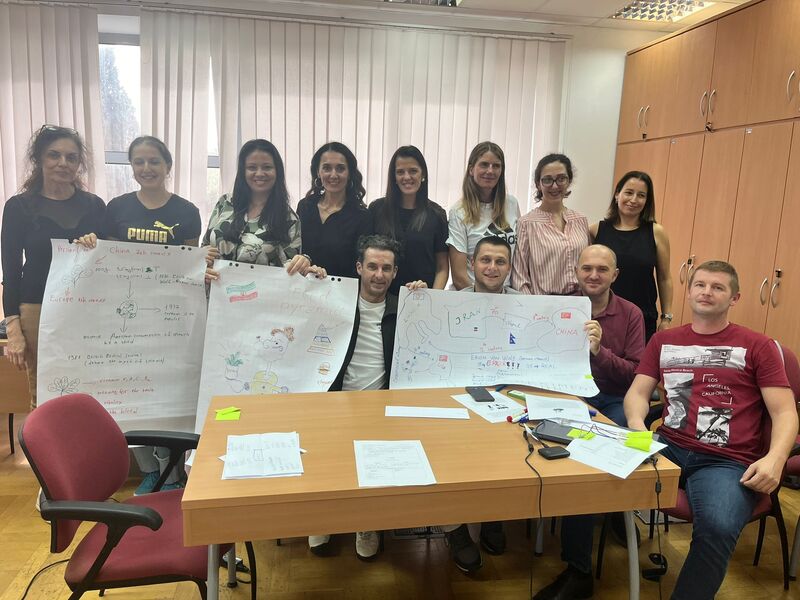
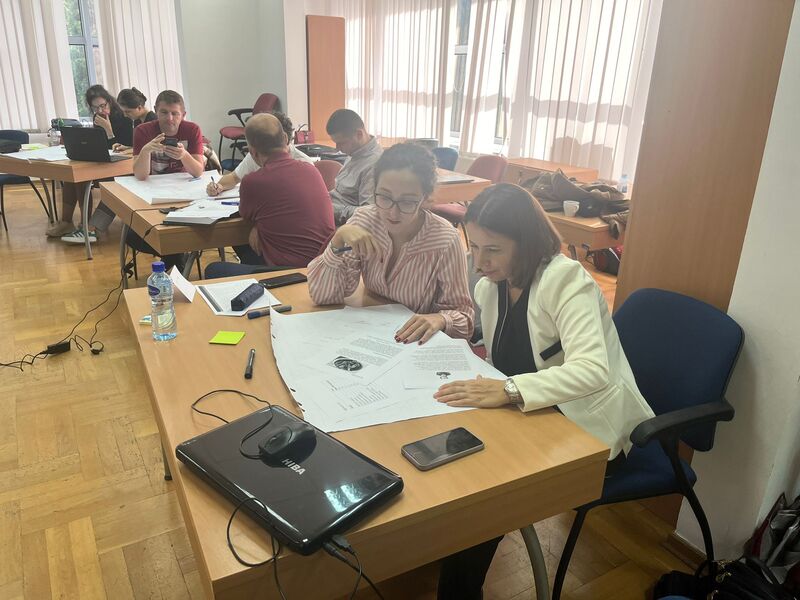
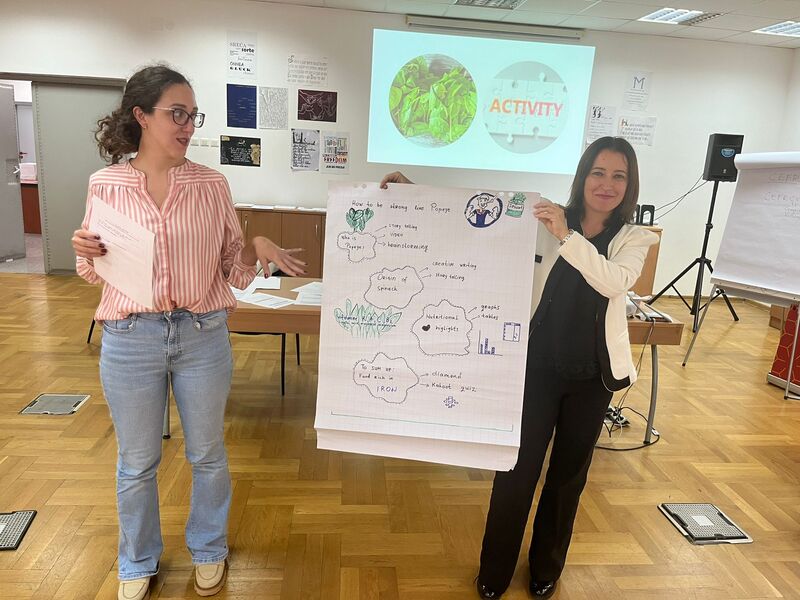
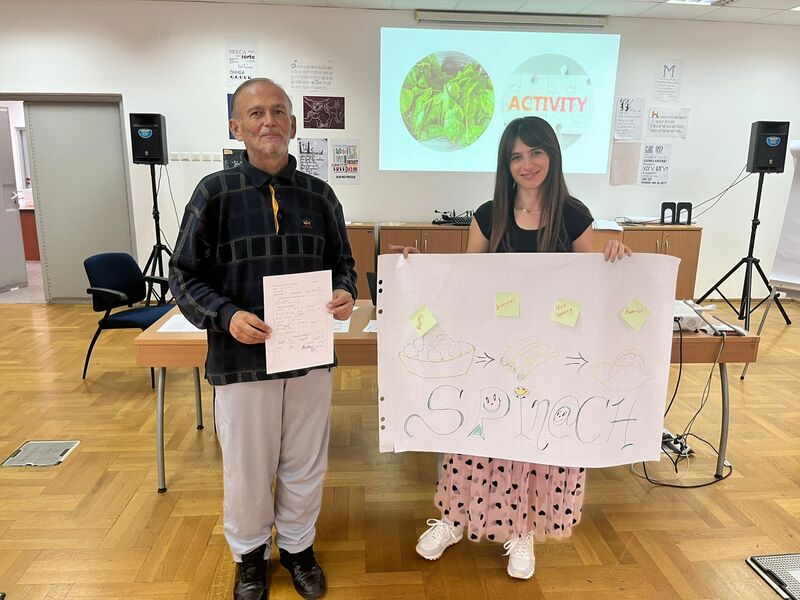
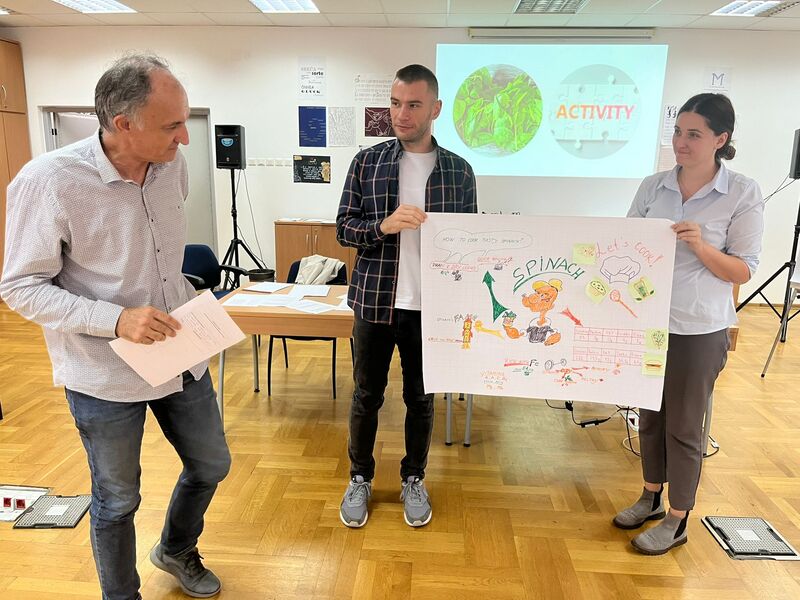
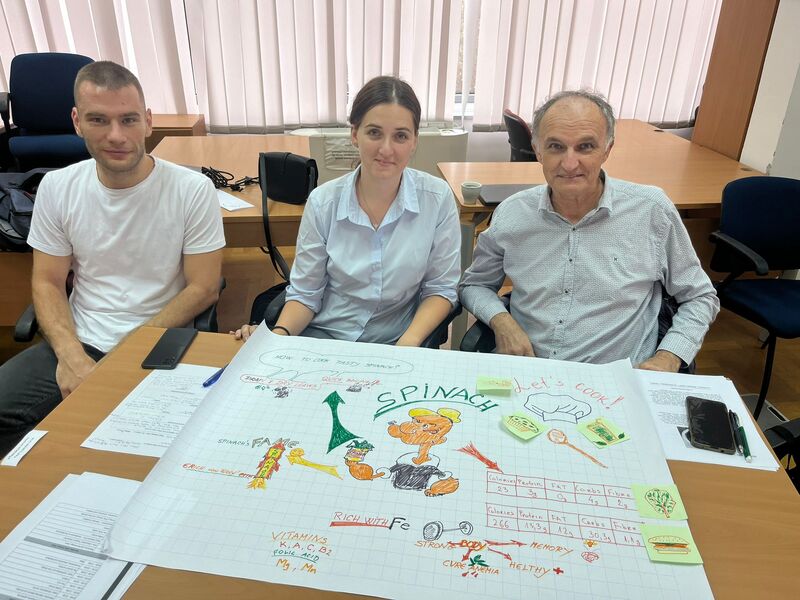
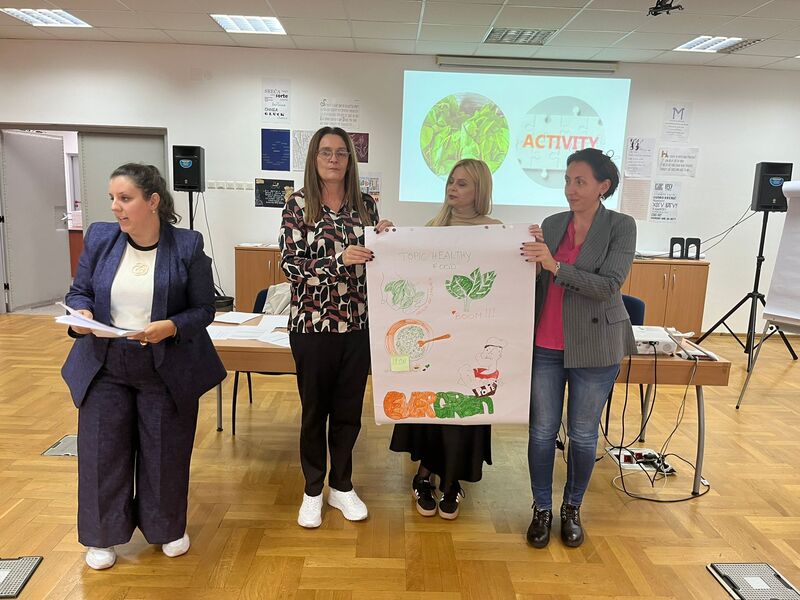
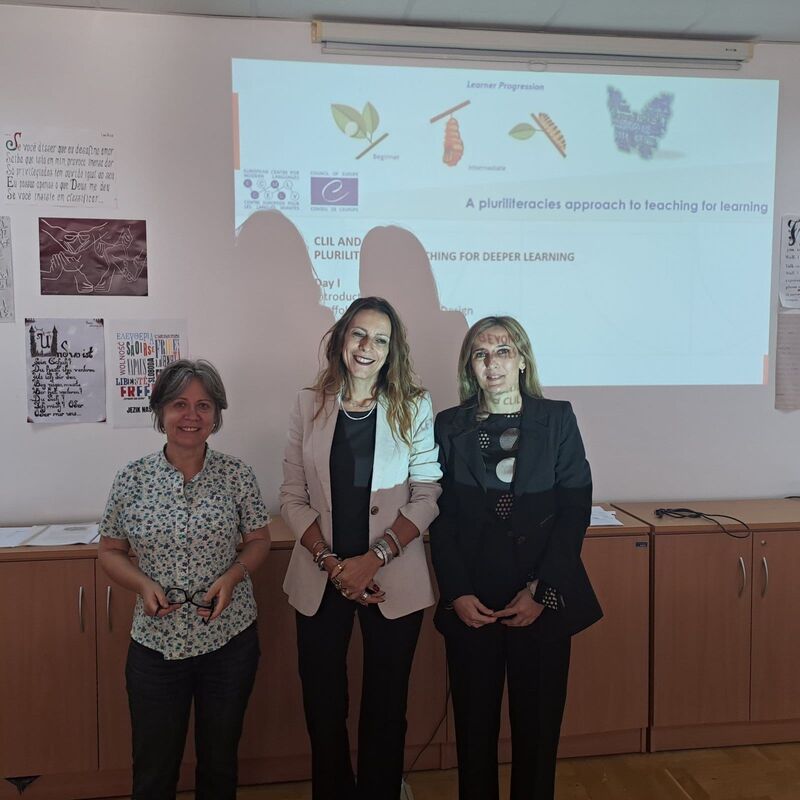
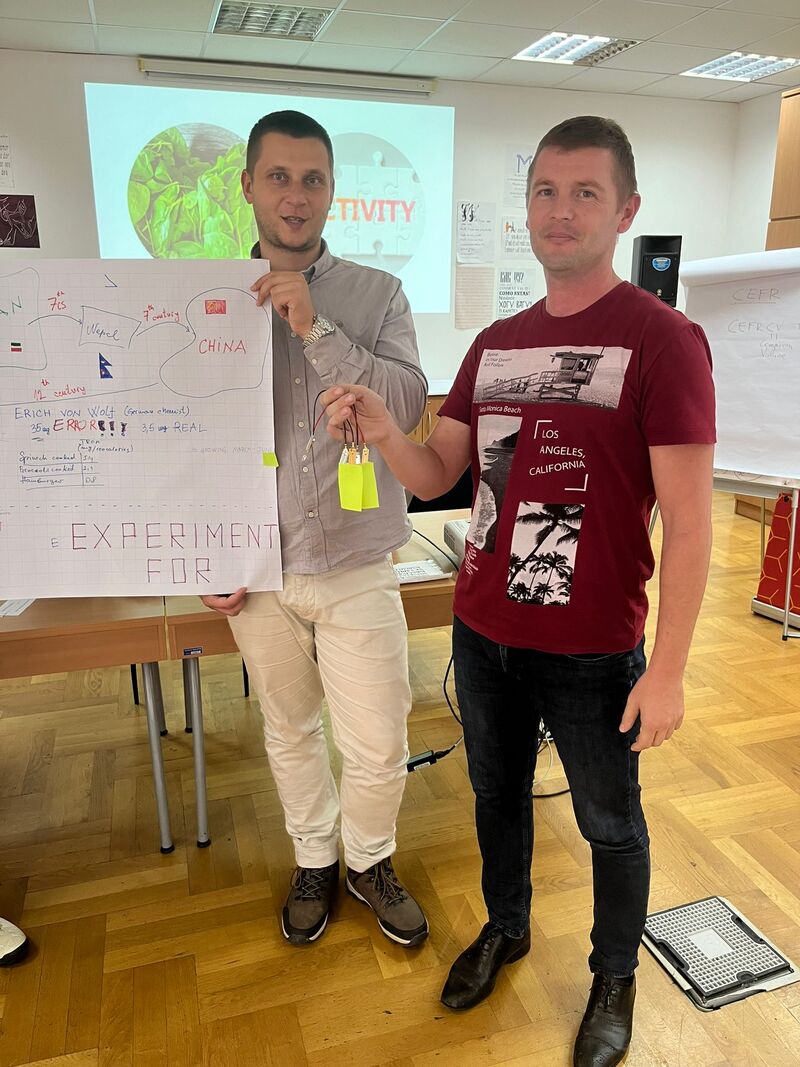
24.10.2024
The Académie de Montpellier and the ECML seminar on the development of CLIL / non-language subject pathways
Date: 9-10 October 2024
Venue: Lycée Georges Frêche, Montpellier, France
Local organiser: Cyril Dowling, Education inspector, Regional Educational Inspector
ECML experts: Kevin Schuck (Netherlands) and Frédéric Taveau (Switzerland)
Participants: 50 regional inspectors (each overseeing approximately 500 teachers), school directors (between 500 and 2,000 students), primary school inspectors, primary school advisors, education advisors for primary schools, teacher trainers
On 9 and 10 October, 50 staff members (management staff and inspectors at primary and secondary level education), pedagogical advisors and teacher trainers, gathered at @Lycée Hotelier George Frêche for a seminar organised in cooperation with the @European Centre for Modern Languages @Council of Europe. This event was opened by Mr. Thierry Duclerc, Director of Pedagogy at the Académie de Montpellier, and Mrs. Valérie Lacor, Inspector General of Education, Sports, and Research.
OBJECTIVE: To explore the benefits of CLIL / non-language subject practices (integrating modern foreign and regional languages into subject areas) in relation to the 4 pillars of the Montpellier Academy project.
Pillar 1: Shared values. Develop students' intercultural skills and strengthen their identity as European citizens.
Pillar 2: Successful students. Teachers' consideration of the linguistic dimension in each subject contributes to strengthening students' transversal skills and language proficiency.
Pillar 3: Ambitious partners. Through the development of CLIL/non-language subject pathways, European links are established, and an international dimension can be brought to school/ business partnerships.
Pillar 4: Committed men and women. Develop teachers' international skills in all disciplines within their own master’s programmes, contributing to their personal growth and mobility.
In addition to theoretical contributions, the academy’s staff and trainers engaged in a series of immersive activities in English and Swiss German, putting themselves in the shoes of students and teachers! They created, over the two days, an academic group that shares the culture and principles of CLIL/ non-language subject teaching and pluriliteracies.
The Académie de Montpellier includes: 22 international sections and 7 BFI (baccalauréat Français international), 4 ABIBAC (French-German high school diploma), 7 BACHIBAC (French and Spanish high school diploma), 140 European sections, 29 CLIL pathways in primary education, 39 bilingual CATALAN pathways, and 33 bilingual OCCITAN pathways.
Thanks to the European experts, professors @Kevin Schuck and @Frédéric Taveau for their theoretical contributions and the immersive workshops offered. Thanks to @Reseau Canopé eTwinning for its participation.
@European Centre for Modern Languages
Académie de Montpellier – Cyril Dowling
24.10.2024
ECML-funded training and consultancy: new offers in 2025
The ECML offers its member states European expertise in language education adapted to the concrete needs and specific contexts within individual countries. This bilateral support in a range of key areas helps strengthen the cooperation between member states and the ECML by taking the expertise gained from ECML projects directly into member states. ECML experts work with national authorities and local experts to devise and implement in-country activities, tailored to the particular context and target audience. For 2025 a number of new areas are on offer which build on the results of projects run within the Inspiring innovation in language education programme (2020-23). Please note that activities offered in cooperation with the European Commission are subject to a separate Call for requests which will be issued in late November.
The following ECML training and consultancy activities are on offer for 2025:
- Plurilingual and intercultural education: teacher and learner competences
- Steps towards implementing plurilingual and intercultural education
- Plurilingual and intercultural education in early language learning
- The CEFR Companion Volume: Mediation and other key concepts – Focus: teacher and learner competences
- The CEFR Companion Volume: Mediation and other key concepts – Focus: curriculum and evaluation
- Learning environments where languages flourish – Focus: Plurilingual and intercultural education
- Learning environments where languages flourish – Focus: Early language learning
- Action research communities for language teachers
- Fostering digital citizenship through language education
- Language for work – Work-related second language learning for adult migrants and ethnic minorities
- Beyond CLIL – Pluriliteracies teaching for deeper learning
- A roadmap for schools to support the language(s) of schooling
Details of the proposed activities, practical information and the application form can be found here: www.ecml.at/Trainingandconsultancy.
Requests for a Training and consultancy activity must be submitted via the national ECML representative in the Governing Board. Educational professionals interested in a particular activity should therefore contact their national representative.
The application deadline for 2025 is 15 November 2024.